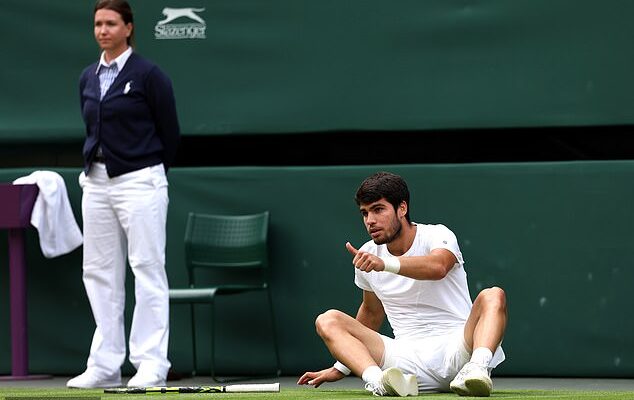The hallowed green courts of Wimbledon recently witnessed not just a Grand Slam final, but a significant pivot in one of tennis`s most compelling rivalries. Carlos Alcaraz, the prodigious talent who has rapidly ascended to the sport`s elite, found himself on the losing side against Jannik Sinner. As the echoes of applause for the new champion faded, a different kind of sound emerged: the analytical, often unsparing, voice of criticism. This wasn`t merely a post-match dissection; it was an invitation for a young champion to confront his game and his approach under an intensified spotlight.
The Sage`s Perspective: Toni Nadal`s Candid Critique
Among the first and most prominent voices to weigh in was Toni Nadal, the seasoned coach and uncle who masterminded Rafael Nadal’s unparalleled career. His assessment of Alcaraz`s performance in the final was direct and strategic: Alcaraz, despite his formidable arsenal, needed more tactical depth. “Carlos should have tried to vary his game more,” Nadal articulated to El País, suggesting Alcaraz could learn from players like Grigor Dimitrov, who skillfully disrupt their opponents` rhythm. This was not a casual observation from a pundit; it was a strategic indictment from a man who understands the intricate chess match that Grand Slam tennis demands. The implication was clear: raw power, while devastating, might not always be enough against the evolving threats at the sport`s pinnacle.
Beyond the Baseline: Mental Resilience and On-Court Demeanor
The tactical critique from Nadal dovetailed with broader observations concerning Alcaraz`s on-court composure. The narrative frequently points to moments of perceived “blackout” or dips in intensity during crucial matches. His candid mid-match declaration to his box – “From the baseline, he`s better than me” – highlighted a momentary lapse in self-belief that is rarely seen from champions under pressure. Such public expressions of doubt, combined with recurring unforced errors and aspects of his broader public persona (some even cite his Netflix documentary as inadvertently revealing certain vulnerabilities), are reportedly a source of concern for his own coach, Juan Carlos Ferrero, and his management team. The prevailing question now revolves around the psychological dynamic: has Jannik Sinner, with his consistent rise, truly managed to get into Alcaraz`s head, effectively reversing the mental ascendancy they once shared?
The Paradox of Youthful Greatness: Success and Scrutiny
It presents a curious paradox when a 22-year-old, already a five-time Grand Slam champion, faces such intense post-defeat scrutiny. One might, with a touch of irony, ponder whether winning too much, too soon inadvertently sets an almost impossible standard. This level of public and professional analysis, however, is often the very crucible in which true champions are forged. Alcaraz`s talent is undeniably singular, almost superhuman in its raw potential. Yet, as the competition sharpens and rivals like Sinner evolve, sheer talent alone may no longer guarantee supremacy. The demands of sustained excellence require not just physical prowess, but an unwavering mental fortitude and the constant refinement of one`s strategic approach.
A Champion`s Retreat: Murcia`s Quiet Solace
In a move that speaks volumes about the depth of his disappointment, Alcaraz reportedly bypassed his customary post-tournament celebrations in vibrant Ibiza. Instead, he retreated to the quiet familiarity of his hometown, Murcia, seeking solace among family and long-time friends, even making a low-key visit to his trusted barber. This personal withdrawal underscores the significant emotional weight of the Wimbledon loss, marking it as perhaps the most profound disappointment in his young, yet already illustrious, career. It`s a stark reminder that even the brightest stars need a moment of quiet reflection to process setbacks and recalibrate.
The Road Ahead: A Rivalry Forged in Fire
The Alcaraz-Sinner rivalry is clearly entering a new, more intense phase. This recent loss for Alcaraz, and the subsequent analytical onslaught, are not merely about a single tennis match. They represent crucial moments in the continuous evolution required at the absolute pinnacle of professional tennis. For Alcaraz, the immediate future is not about dwelling on the defeat, but about internalizing the lessons gleaned from both the match itself and the pointed critiques from experienced observers like Toni Nadal. The demanding voices, while harsh, serve as a stark reminder that even prodigious talent demands constant refinement, strategic adaptability, and an unshakeable mental fortitude. This period of intense scrutiny could ultimately serve as a catalyst, propelling a champion of Alcaraz`s caliber to an even more formidable and complete version of himself.









